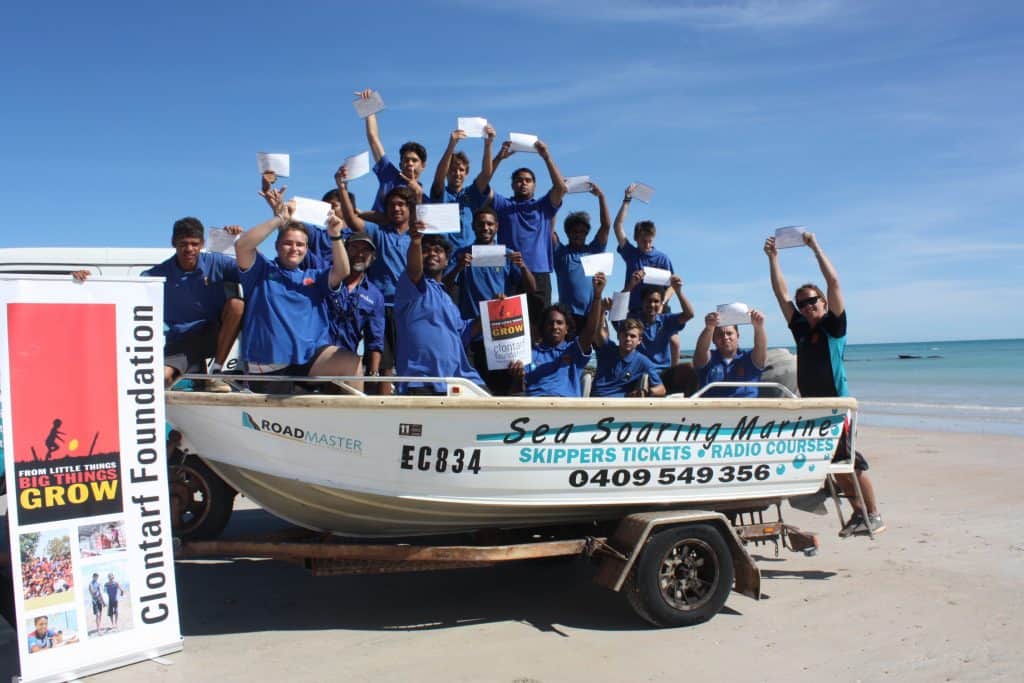FROM LITTLE THINGS BIG THINGS GROW
Each year while travelling the North West I have the opportunity to work with local indigenous students through the network of Clontarf Academies operating in high schools. My first foray into this area was in Kununurra about five years ago, delivering the skipper’s ticket course for a group of five students. I had a contact working as the director of this academy back then and he also encouraged me to become involved in other aspects of the day to day running of the academy. This included heading out on cane toad busting missions into the Northern Territory as well as going along for early morning school ‘pick ups’ in the troop carrier. Since then I have conducted skipper’s ticket courses for Clontarf students from Derby, Halls Creek, Fitzroy Crossing and this year, Broome.
The Clontarf Foundation was the brainchild of Gerard Neesham and is now active in over 68 schools across five states. To quote from the Clontarf website, “The Foundation believes that failure to experience achievement when young, coupled with a position of under-privilege can lead to alienation, anger and more serious consequences. As a prelude to tackling these and other issues, participants are first provided with an opportunity to succeed and in turn raise their self-esteem.” Aussie Rules and Rugby League are the main vehicle for achieving this outcome, although many other recreational activities, community based initiatives and workplace opportunities are included to engage students and enable them to reach their full potential.
This year Broome enrolled twenty Year 11 and Year 12 students in the Recreational Skipper’s Ticket Course, which was conducted over a four week period. Being a large group, the Broome Clontarf staff had to regularly juggle their day to day operations in order to give the students every chance of achieving the license and so thanks to Darren Muir ( DJ ),Nathan Pigram and Slade Sibosado for making this possible.
From the outset, all students were aware that the skipper’s ticket had to be earned and there was a minimum standard required, as it is a license to drive any size vessel. The upgraded RST assessments meant some extra training was required to assist students in the theory and practical sections, but with a little perseverance success was achieved.
There is something very rewarding about training young men to drive a boat, some for the first time, sure a little nervous, but all with beaming smiles and a genuine keenness to learn. Sure, I have them in the ideal environment doing something they enjoy and you can bet I make the most of this situation for them as well as myself. It provides a great opportunity for connection and by adding extra little scenarios, to prompt them thinking about how to respond in difficult situations. You’d like to think that even if just one of these students, maybe in a few or even many years to come, uses the skills learnt as a stepping stone to a career on boats, to avoid an accident at sea or just as a basis for enjoying life, then it was surely worthwhile. As the Clontarf motto says, ‘from little things big things grow’.
To answer last week’s question, interstate boat licenses are easily transferable to WA. This week’s question is, “How long is an interstate or overseas boat license valid for once you move to WA on a permanent basis?”
0409549356
Find us on seasoaringmarine

